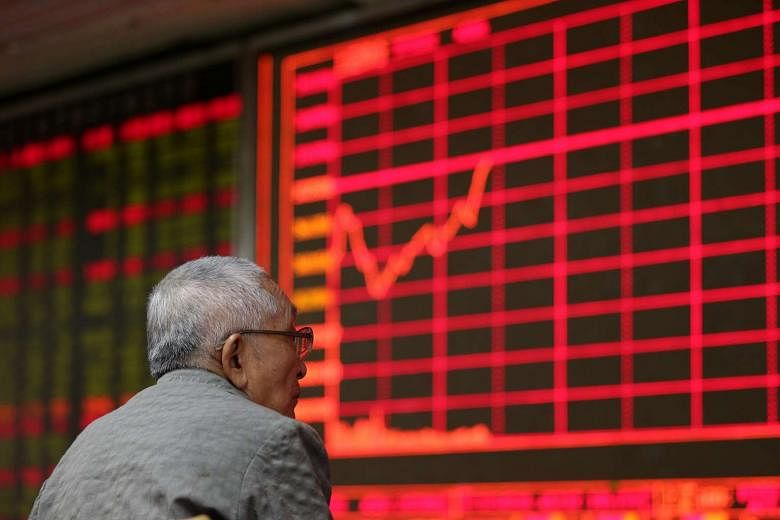BEIJING (Reuters) - China's ruling Communist Party has begun looking for an eventual replacement for the top securities regulator, who faces internal criticism over his handling of this year's boom and bust in Chinese stock prices, sources with ties to the leadership said.
The party has in recent weeks sounded out potential candidates to succeed Xiao Gang as chairman of the China Securities Regulatory Commission (CSRC), and party elders will discuss the matter at meetings this summer, two sources said.
The search for a successor is unusual so early in Mr Xiao's term, which does not expire until end-2018, and reflects the party's unhappiness with his performance, but a final decision has not been made yet on whether to replace him, they added.
Some in the party believe an immediate change of leadership at the CSRC, which is at the forefront of a government campaign to shore up share markets, could increase market uncertainty.
"The central (leadership) is not very satisfied with Xiao Gang, but maintaining market stability is the top priority," one source said.
Mr Xiao, who turns 57 this month, was appointed only two years ago. He has come under fire by investors for what they see as a clumsy response to the market panic that began in mid June, and for not doing more to curb the markets' earlier excesses.
The Shanghai and Shenzhen markets rocketed ahead in the first half of this year then tumbled more than 30 percent in three weeks. The sell-off triggered a series of interventions by the CSRC, including new restrictions on selling shares.
The party's Organisation Department has recommended a shortlist of at least three candidates to replace Xiao, the sources said, adding that the secretariat of the party's Central Committee had already sounded them out.
They include Huang Qifan, 63, mayor of the southwestern metropolis of Chongqing, who is seen as the favourite, sources said. He aroused speculation about his ambitions last week when he made comments in a speech about finance and reform, including his desire for Chongqing to develop a financial industry.
Mr Huang, who ranks as a provincial governor in the party, is near retirement age of 65 for officials of his seniority, but it is not unusual for key appointments to work past retirement age.
The party and the Chongqing city government declined requests for comment when reached by telephone. The CSRC did not respond to a written request for comment.
The sources did not know the identity of the other potential candidates.
Mr Xiao drew investor anger over the CSRC's blunt measures to halt the sell-off: a freeze on initial public offers, a crackdown on short-selling, an instruction to major shareholders to not sell for six months, and allowing up to 45 per cent of listed firms to suspend their shares at one point.
The measures had little immediate effect, but they further damaged investor confidence and brought into question China's commitment to free-market reforms.
However, fund managers and a regulatory official say it would be unfair to blame Mr Xiao for the crash and that other state agencies also made missteps during the market rescue effort.
The Beijing leadership also backed the measures imposed by the CSRC, which was acting as part of a coordinated approach agreed upon at a meeting of regulators and Chinese financial institutions in early July, chaired by Premier Li Keqiang. "Xiao can't take all the blame for the market turmoil," said the official within the CSRC.
Market speculation over Mr Xiao picked up last Thursday when state media re-published a May speech by President Xi Jinping in which he called for the promotion of cadres who "want to reform, seek to reform and are good at reform".
Mr Xiao's leadership appeared to have been in doubt even before the market began to slide, with some candidates approached by the party secretariat before then, one source said.
The matter will be discussed this summer at party meetings in Beidaihe, a seaside resort where incumbent and retired party, government and military leaders hold informal talks each year.

